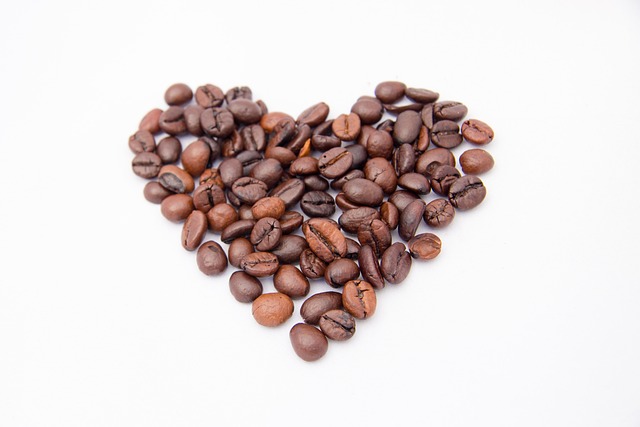Does Black Coffee Burn Calories?
Black coffee has developed a reputation as a low-calorie beverage that can boost fat burning and amplify weight loss. With celebrity diet endorsements and copious Instagram influencer ads flooding our feeds, the notion that America’s beloved morning fuel can melt away pounds seems enticingly simple. However, as is often true in nutrition and fitness spaces, the real scientific evidence behind these claims is more complex.
This comprehensive guide dives into black coffee’s actual impact on metabolism and calorie expenditure, arming you with research-backed information to fuel (or temper) your java-fueled ambitions. We’ll explore key factors like caffeine content, complementary dietary habits, genetic variables, optimal consumption guidelines, and more – distilling the truths from the unfounded hype. Armed with this knowledge, you can incorporate black coffee into your routine in a health-conscious way as you strive for your weight loss goals.
A Primer: Caffeine, Chlorogenic Acids, and Black Coffee’s Buzz
To understand how black coffee may influence calorie burning, we must first understand its components and their mechanisms of action. These key players include:

Caffeine
This central nervous system stimulant is absorbed rapidly into the bloodstream reaching peak concentrations within 30-120 minutes post consumption. Caffeine has widespread effects including:
- Increased release of dopamine, serotonin, and noradrenaline – key neurotransmitters modulating mood, vigilance, concentration, and perceived energy
- Blocked adenosine reception – adenosine promotes feelings of drowsiness, while blocking it stimulates wakefulness
- Boosted metabolism – caffeinated beverages temporarily spur calorie and fat burning through increased epinephrine and accelerated metabolism
Caffeine dosing varies based on factors like bean source, roast type, and preparation which influence caffeine content:
On average, an 8-ounce cup of generic brewed black coffee contains approximately:
- 95mg caffeine
- 2 calories
- 0g fat
- 0g sugar
- 0g protein
So in essence, black coffee itself has negligible direct caloric impact. Yet its caffeine component may drive downstream metabolic effects. We’ll analyze the science shortly.

Chlorogenic Acids
These polyphenol antioxidants are abundant in coffee beans with especially high levels in green (unroasted beans). During roasting, chlorogenic acid concentrations are reduced by 20-60%. Yet coffee remains a prime dietary source of these compounds.
Upon digestion, chlorogenic acids have an array of effects including:
- Slowed glucose absorption in the gut via inhibited digestive enzymes – thereby blunting rises in blood sugar and insulin
- Anti-inflammatory and antioxidant effects – linked to chronic disease risk reduction
- Altered gut microbiome – may impact metabolism and weight regulation
By regulating blood sugar and insulin, chlorogenic acids may indirectly enhance calorie and fat burning capacity. Meanwhile, reshaping gut bacteria populations could theoretically influence metabolic processes tied to weight management.
Black Coffee’s True Impact on Calorie Expenditure
While robust clinical research demonstrates various wellness benefits of coffee, studies focused explicitly on coffee and weight loss are limited and results remain mixed.
We’ll examine key findings surrounding coffee and calorie burning potential including caffeine versus decaffeinated comparisons evaluating the isolated effects of these key coffee compounds:
| Study | Type | Participants | Exposure | Outcome |
|---|---|---|---|---|
| 2009 clinical trial [1] | Randomized, double-blind | 16 healthy weight adults | 5 mg/kg caffeine versus placebo 1-hour before exercise | ↗️ Fat oxidation during moderate intensity cycling |
| 2015 clinical trial [2] | Single-blind | 15 sedentary women | 2mg/kg caffeine versus placebo daily for 4 weeks | No change in RMR, blood pressure, heart rate, or body composition |
| 2016 clinical trial [3] | Randomized, double-blind | 33 overweight adults | 4 cups coffee versus decaf for 12 weeks | ↘️ Body fat % in caffeinated coffee group only |
| 2018 review [4] | Systematic review & meta-analysis | Weight loss focused studies on varying populations | Analyzed impact of coffee/caffeine consumption | Coffee CAN temporarily ↗️ RMR and fat oxidation but inconsistent effects on weight loss and weight maintenance |
Key Takeaways:
- Caffeine alone or as regular coffee MAY temporarily increase RMR and fat burning during exercise
- For sustained weight loss, decreased caloric intake remains vital
- High fat/calorie additions like cream and sugar should be avoided
- Genetics and lifestyle factors also influence individual effects of coffee
In essence, available evidence suggests caffeine can provide a modest metabolic lift but is not a replacement for dietary and activity modifications for weight control.

Maximizing the Potential: Healthy Habits to Pair with Your Morning Joe
While coffee itself may provide minor calorie burning benefits, substantially impacting weight requires a multilayered, holistic approach.
Baseline healthy habits provide the fundamental foundation including:
- A balanced, nutrient-rich, reduced-calorie diet comprising vegetables, fruit, whole grains, lean protein, healthy fats, and hydration. Focus particularly on viscous fiber consumption to promote satiation.
- Routine exercise for at least 30-60 minutes daily emphasizing a blend of resistance training and cardio exercise to build metabolically active muscle mass while directly expending calories.
- Adequate sleep of 7+ hours nightly allows metabolic and other body processes to optimize.
- Stress management via meditation, yoga, social connection, nature immersion – excessive stress hormones disrupt metabolic pathways.
Layering black coffee on top of these pillars then provides adjunct physiological support:
- Caffeine: Temporarily spikes metabolism and fat burning
- Chlorogenic acids: Regulates blood sugar and insulin
- Fluid hydration: Helps regulate body temperature, transport nutrients, flush waste products
Meanwhile, avoiding coffee add-ins like cream, sugar, and artificial sweeteners cuts excess calories and negative health effects that could counter benefits.
Optimizing the “Dose” – Finding Your Customized Coffee Sweet Spot
Caffeine dosage should be determined based on individual factors like body composition, medication and dietary supplement interactions, gastrointestinal sensitivity, and more.
Use these best practices to harness benefits while avoiding adverse effects:
- Start Low & Slow: Begin with 1 cup daily, ideally consuming before workouts to leverage exercise synergies. Gradually titrate upwards as needed/tolerated to avoid jitters, insomnia, headaches etc. Spread consumption over the first part of your day finishing before 2 pm to prevent sleep disruption.
- Diversify Your Diet: Consume other antioxidant-rich beverages in moderation like green tea and tart cherry juice. Pair with dark chocolate for an antioxidant, polyphenol power couple!
- Time Strategically: Drink black coffee 30-60 minutes pre-workout when practicable. Caffeine requires over 15 minutes for absorption but peaks around the 60-minute mark. This primes your body to fully leverage coffee’s ergogenic and fat burning properties during training.
- Adjust for YOUR Body: Monitor effects adjusting based on individual responses and needs. Caffeine metabolism varies widely based on factors like genetics, sex, oral contraceptive use, smoking and more. If unpleasant symptoms manifest, reduce intake.
- Cycle Strategically: Periodic caffeine tolerance breaks can revive sensitivity especially among habitual coffee drinkers. Try cycling 2 weeks on/off. Or take a few days off every 4-8 weeks.

The Take-Home Brew: Black Coffee’s Role in Weight Management
While black coffee cannot single-handedly produce substantial, lasting weight loss, its metabolic and blood sugar regulating properties may mildly augment daily calorie expenditure. By supporting baseline healthy habits without adding excess calories, it can be part of an integrated diet and lifestyle approach.
However, individuals have highly variable responses based on age, genetics, medications, pre-existing conditions and more. Thus, appropriate dosing requires personalization and vigilant self-monitoring.
As with any supplement or bioactive food component, more clinical research is needed clarifying efficacy and safety across patient demographics. For now, consume black coffee as an accessory, not as a stand-alone solution, to boost energy expenditure. But tap into its convenience and nostalgic comfort as a satisfying complement to fruits, veggies and home cooked meals as part of your daily wellness brew.






